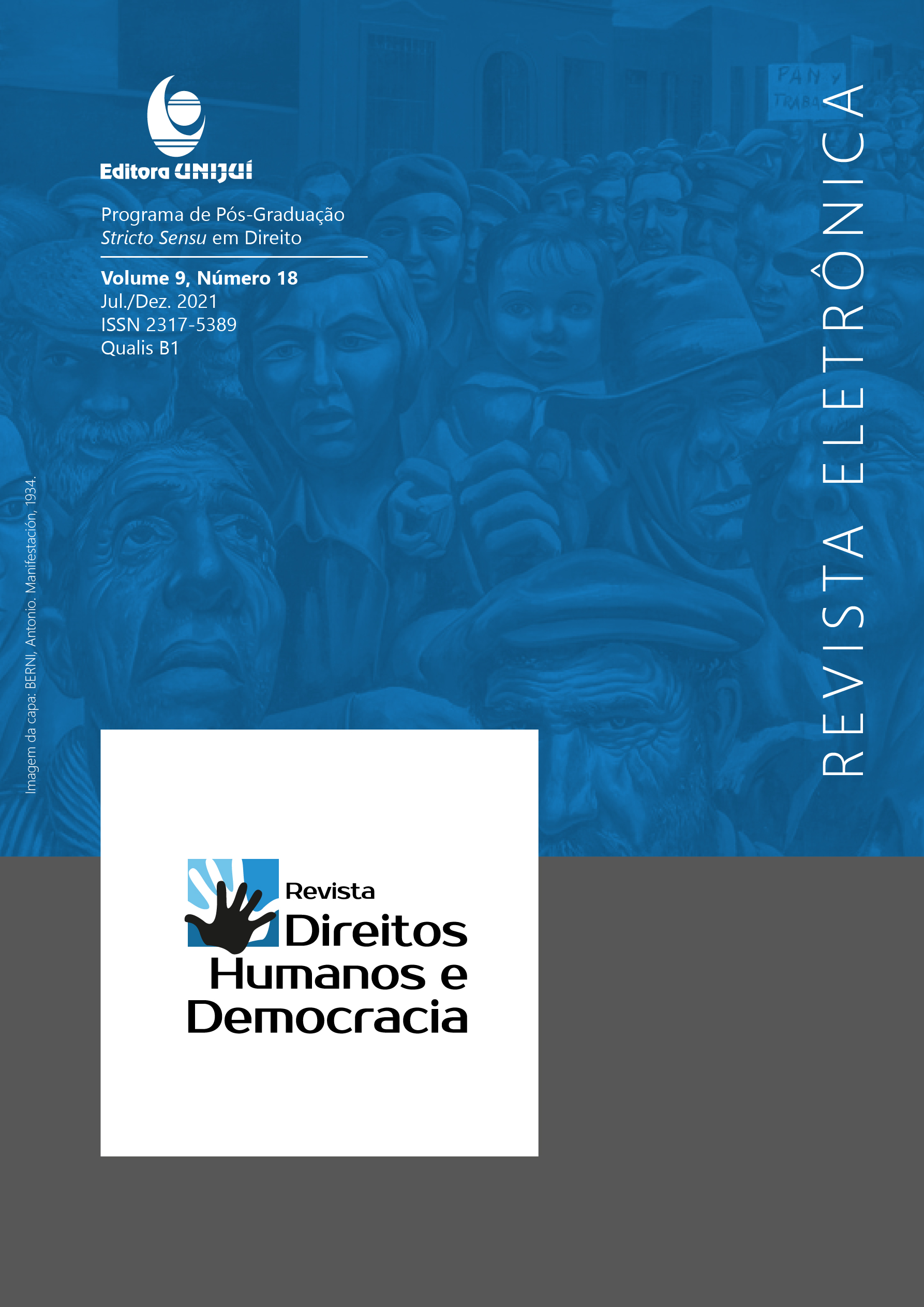VIOLÊNCIA, PRECARIEDADE, NECROPOLÍTICA E DESIGUALDADE SOCIAL EM ESPAÇOS URBANOS
VIOLENCE, PRECARIOUSNESS, NECROPOLITICS AND SOCIAL INEQUALITY IN URBAN SPACES
DOI:
https://doi.org/10.21527/2317-5389.2021.18.11537Keywords:
Cities, Biopower, Precariousness, Necropolitics, Social MemoryAbstract
Cities are complex urban spaces due to geographical, social and economic differences which are responsible for upheavals and chaos. Our objective is to reflect on the unequal distribution of precariousness in different regions of the urban space, in relation to techniques that contribute to the submission and objectification of bodies, considering them commodities through the control of the population that trigger power strategies resulting in segregation and social hierarchy. Through these tactics, in the modern scenario of capitalism, the accumulation of men takes place in a similar manner to the accumulation of capital. The application of biopower results in the disordered expansion of certain human groups at the expense of productive forces and the different distribution of profit. Besides, we reflect on these topics taking into consideration the bibliographic review method, privileging a line of thought with emphasis on precariousness coated in vulnerability, considering disposable lives not subject to mourning and protected lives. Then, the role of urban equipment and services available in certain neighborhoods is questioned. We conclude that biopower is not just a power centralized in a governmental authority, personified in great executioners of certain groups, since it is a network in which power is capillarized and determines, through social adjustments, higher levels of precariousness in certain social segments and smaller shares in others. Finally, we state that the evidence referred to converges to think the scope of the Necropolitics, based especially on racial issues, used to justify the context of killable lives.
Downloads
Published
How to Cite
Issue
Section
License
By publishing in the Revista Direitos Humanos e Democracia, authors agree to the following terms:
Articles are licensed under the Creative Commons Atribuição 4.0 Internacional (CC BY 4.0), which allows:
Share — copy and redistribute the material in any medium or format;
Adapt — remix, transform, and build upon the material for any purpose, including commercial use.
These permissions are irrevocable, provided the following terms are respected:
Attribution — authors must be properly credited, with a link to the license and indication of any modifications made;
No additional restrictions — no legal or technological measures may be applied that restrict the use permitted by the license.
Notices:
The license does not apply to elements in the public domain or covered by legal exceptions.
The license does not grant all rights required for specific uses (e.g., image rights, privacy, or moral rights).
The journal is not responsible for opinions expressed in the articles, which remain the sole responsibility of the authors. The Editor, with the support of the Editorial Committee, reserves the right to suggest or request modifications when necessary.
Only original scientific articles presenting research results of interest, not previously published or simultaneously submitted to another journal with the same purpose, will be accepted.
References to trademarks or specific products are intended solely for identification purposes and do not imply any promotional endorsement by the authors or the journal.
License Agreement: Authors retain copyright over their articles and grant the Revista Direitos Humanos e Democracia the right of first publication.













